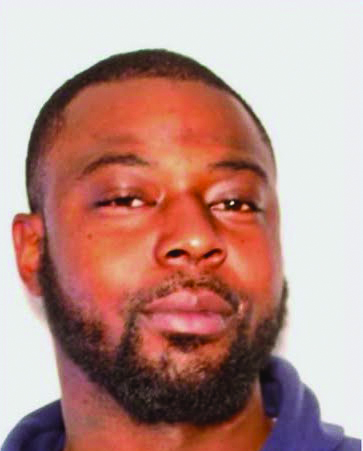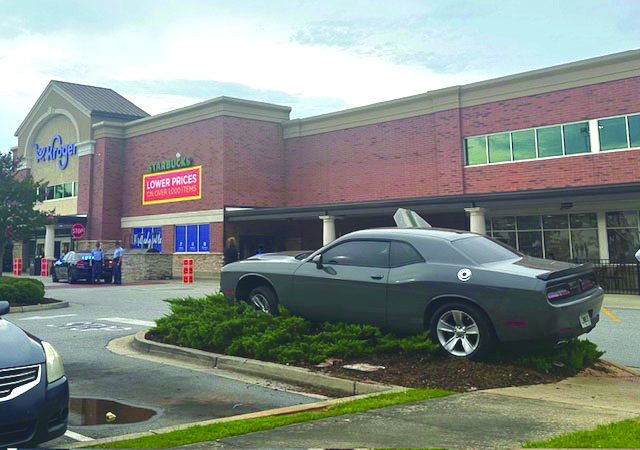Path to genetic testing helps save woman’s life, now she hopes her story inspires others
Published 4:30 pm Friday, October 15, 2021

- Breast cancer Kandace Markham shares her story with others in hopes of encouraging others to get tested.
Kandace Allen Markham has spent 13 years as a physician’s assistant treating patients, but last year she found herself in their shoes. It’s an experience that motivated her to encourage others to empower themselves with knowledge when it comes to their own health.
Trending
Markham, who works with Oconee Family Medicine, was diagnosed with breast cancer last October.
“I was working with an OBGYN at that time, and we were offering a new type of hereditary cancer screening to our patients,” she explained.
To qualify for the test, patients (male or female) must have a family history of any type of cancer or a personal history of cancer. Markham had a history of melanoma on her nose 15 years earlier, so she decided to have the test drawn by one of the doctors she worked with.
That simple blood test drawn in the office came back positive for Chek-2 Gene Mutation, which increased her risk for breast cancer and colorectal cancer. Markham had recently turned 40, so she went for her first mammogram shortly after the blood test. It showed Stage 0 ductal carcinoma in situ — meaning the cancer had not escaped the breast duct.
With the positive gene test followed by the mammogram, Markham made the decision to have a double mastectomy at age 40.
“I knew in my heart,” she said of the decision. “I have a 7-year-old son. Being a health care worker, I knew that having this gene that this cancer would more than likely recur, and so I decided for the best interest of myself and my son that I needed to go ahead and have a double mastectomy to know that I would be here for him when he graduates from high school.”
Trending
Markham had the surgery last November. She is now cancer-free.
“I underwent no chemo, no radiation, and I am cured,” she said.
She will have her final reconstructive surgery at the end of this month in Augusta.
She does not believe the path she has traveled is by coincidence.
“I truly believe the good Lord, He leads us where we need to be,” she said. “If I wouldn’t have done that blood test, I may have just opted for a lumpectomy with radiation and then estrogen suppressant therapy, not knowing that I had this gene, and then it come back again in five years and then it come back with a vengeance.”
Her experience has motivated her to strongly encourage the test to others. In the past, it was primarily considered a woman’s test, but Markham said that’s not the case. It checks for genes related to multiple types of cancers, not just breast cancer.
“This can be a test that a man, a woman, anybody can get. And because I was positive, any of my first-degree relatives can come and get tested for free to see where this gene came from.”
The test, by Natera, is called Empower. According to Natera’s website, Empower is a “genetic test for those who want to know more about their risk of developing cancer, why it might be common in their family, or want to inform treatment options following a cancer diagnosis. Empower tests up to 53 genes associated with risk for common hereditary cancers using blood or saliva samples.”
Markham said patients should ask their primary care doctor or women’s health doctor about hereditary cancer screening.
“I can definitely say that mammograms do save lives, and now, with this added piece of information doing this hereditary cancer screen, it could save your life and potentially your family members or even your children because of the implications,” she said.
Since her diagnosis, Markham said people have asked for the test simply because they now know that it’s available.
“At least I can offer this to them because I’ve had so many patients come in and say, ‘Kandace, can you just test me for cancer?’ Well, there’s not just a general test for cancer. There are tons of different types of cancer, but this is a good screening to see if you have a gene that may increase your risk for cancer. Just because you have the gene, it doesn’t mean that you’re going to have cancer. This just means that we’re just going to look at things a little more closely than we would the average person.”
If a patient does have a positive from the genetic test, they get a free 30-minute counseling session over the phone with a genetic counselor explaining the results. The report specifies what the patient’s percentage of the gene may be, what diseases could potentially result, and what their percentage of developing cancer versus the average person may be. The results also provide guidelines such as requesting specific tests from their primary care physician. For instance, if Markham’s mammogram had not revealed the cancer, her results would have likely recommended a diagnostic mammogram followed by a breast MRI six months later.
“We normally don’t do MRIs of the breast, but because of me having that gene, we want to just look a little bit further,” she explained.
Markham said technology has allowed for genetic testing to come so far in the past few years. Once only done in larger hospitals and cities, it is now available in the office in many places. She believes tests like Empower should become a standard of care that insurance should pay for, and her personal experience motivates her daily to advocate for that cause.
“You can look at breast cancer or any type of cancer diagnosis as a negative thing, but I really feel like that I’m here to be able to share my story and to be able to help somebody else.”





